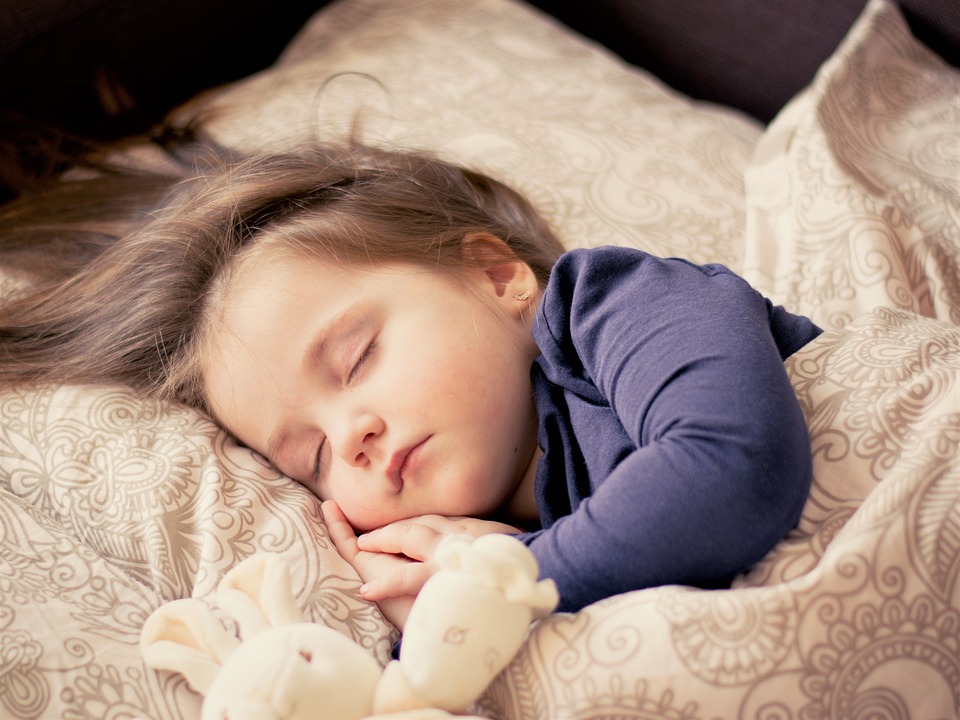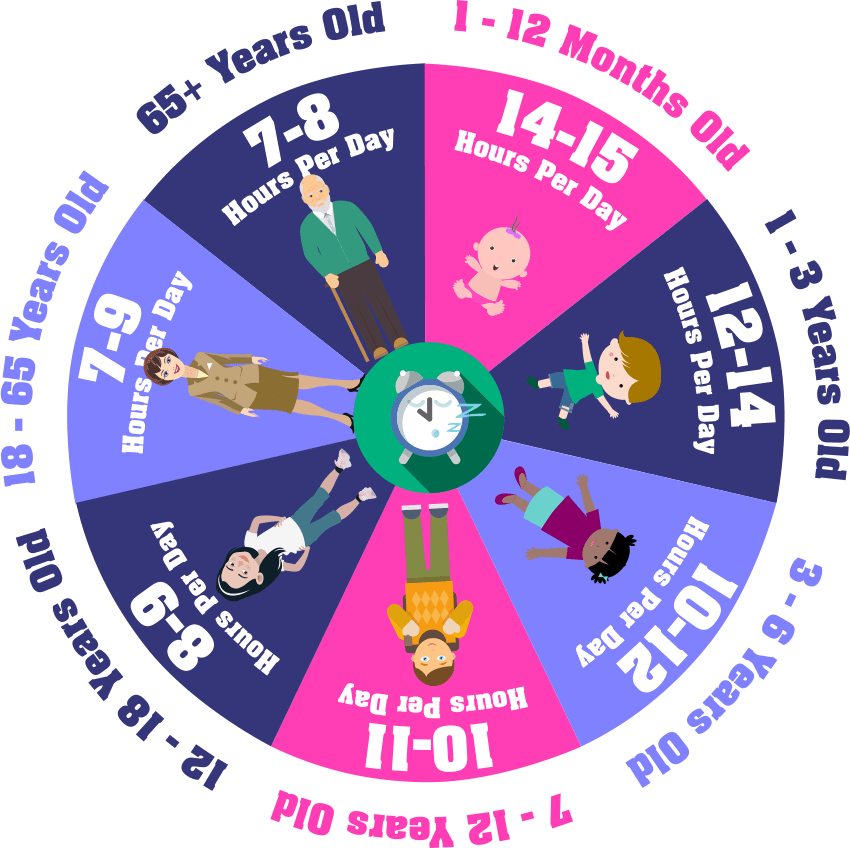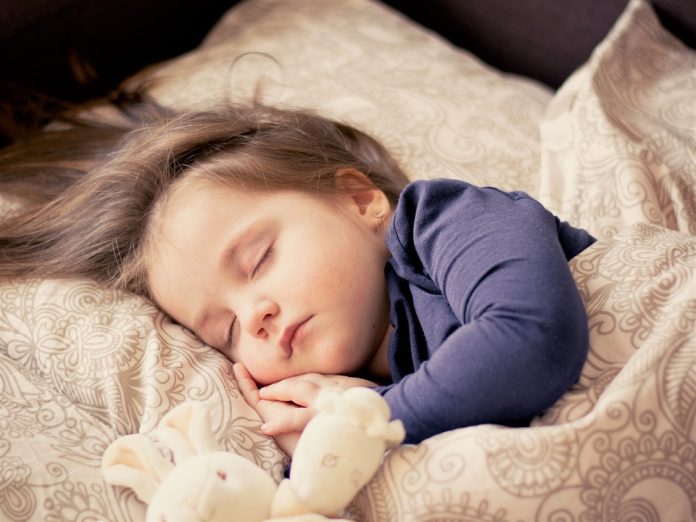The ideal bedtime for children is always something that parents care about at each stage of development. Sleep plays an important role in the mental and physical development of children. Why is going to bed on time so important? How many hours a day do babies need to sleep? All answers will be shared through the article below.
The importance of sleep for children
For children, sleep is just as important as food and water every day. A good night’s sleep is essential for the overall development of both the mind and body of children.
In contrast, poor sleep or lack of sleep will make children irritable, fussy, difficult to concentrate, and tired. If children often are in this condition, the child will develop slower than other children and of course they will not be agile, smart, active and in the long run it will affect the health of the child.

If the ideal bedtime for children is not properly arranged, it will miss the time when growth hormone is most secreted and affect the development of the child.
Sleep is the time when the brain recharges. Therefore, a deep sleep will help enhance memory, concentration and learning ability of children. In addition, when children get enough sleep, it helps to balance hormone regulation, including hormones that help control appetite. Lack of sleep can increase appetite and cause overweight and obesity in children. A good night’s sleep also supports the immune system, helping the body fight bacteria and making children less likely to get sick.
Ideal bedtime for kids

Ideal bedtime for babies 1-4 weeks’ old
With babies from 1 to 4 weeks old, mothers need to make sure they sleep 15 to 18 hours a day. Baby’s sleep is divided into several stages, depending on the child’s need to eat and go to the toilet, each sleep stage lasts from 2 to 4 hours. Babies born prematurely may sleep longer, and babies with digestive problems may sleep less. During the period from 1 to 4 weeks old, babies have not formed their own biological clocks, so their sleeping time is often not fixed.
In the first months of life, the ideal bedtime for children is 15-18 hours a day
Ideal bedtime for children from 1 to 4 months
Entering this stage, babies begin to form a fixed sleep schedule. So the ideal bedtime for children is 14 to 15 hours a day. Each sleep usually lasts from 4 to 6 hours and children often sleep more at night. Parents can put the baby in the crib when the baby is about to sleep to help the baby fall asleep on his own.
Ideal bedtime for children aged 4 months to 1 year
At this stage, 15 hours a day is the ideal bedtime for children. But in fact, babies under 11 months of age usually only sleep 12 hours a day. This is an important period for babies to form healthy sleep routines and sleep cycles to begin to resemble those of adults.
Parents need to form a regular bedtime routine for their children to help them form a stable and fixed circadian rhythm.
In the morning, children usually start sleeping from 9 to 10 o’clock. At noon, children can start around midday until about 2pm. Children can start sleeping from 3 to 5 hours in the afternoon. By the age of 6 months, babies’ bodies have developed and are capable of sleeping through the night.
Ideal bedtime for children aged 1-3 years
By the time a child is 1-year-old, a nap in the afternoon will gradually replace sleep in the morning. As a toddler, the ideal bedtime for children is 14 hours a day. But in reality, babies only sleep about 10 hours a day. In most children between the ages of 21 and 36 months, short naps are still needed, and the duration ranges from 30 minutes to an hour. Babies usually start sleeping at 7 to 9 p.m. and wake up around 6 to 8 a.m.
Ideal bedtime for 3-6 year olds
By the age of 3, children can already form sleep habits like adults. Therefore, parents no longer have many difficulties in taking their children to sleep. This is also the age when children’s brains develop strongly and are entering the completion stage. Therefore, giving children enough sleep is extremely important.
- For 3-year-olds, the ideal bedtime for children is 12 to 13 hours a day. During this period, children may take less naps. However, in the evening, parents should still meet the above sleeping time. At this stage, parents should also practice letting the child sleep in a separate bed with their parents so as not to be woken up and fussed at night.
- For 4 to 5 year olds, the ideal bedtime is 11 to 12 hours a day. This age is also quite similar to 3 years old, some children may still keep the habit of napping less. During the day, children can play more and will go to bed early at night.
- For 6-year-olds, the ideal sleep time falls between 10 and 11 hours a day. At this age, children usually sleep only at night and hardly have a nap at noon.
Ideal bedtime for 6-12 year olds
How much sleep do children between 6 and 12 years old need? The ideal bedtime for children this age is between 7 and 12 hours a day. At the age of 6, children have started going to school and have school activities, so children often go to bed earlier at night. At night, babies usually start sleeping at 9pm and wake up around 7 to 10am.
Parents need to ensure the ideal sleep time for children from 6 to 12 years old on average 9 hours a day
Ideal bedtime for children aged 12 and up
Children 12 years and older need 7 to 11 hours of sleep every day. At this stage, children have more activities and exercises, so sleep is very important to regain health. Parents need to pay more attention to the sleep of their children at this age.
How to help children have a good night’s sleep?
In order for children to have a good night’s sleep, parents should note these followings:
- Create a comfortable bedroom space: Children’s bedrooms should be decorated according to their preferences or use gentle colors and use seasonally appropriate bedding to make it easier for children to fall asleep.
- Children should not eat too much before sleeping, limit snacks, sweets, and greasy foods at night. Absolutely do not give children stimulants such as coffee, tea and limit carbonated soft drinks
- Dress your child in comfortable, breathable clothing.
- During the day, children should not be allowed to play or scream too much. If they are naughty, children will easily wake up and be scared at night.
- Form children the habit of going to bed on time to improve self-discipline and independence in children.
- Parents can tell stories, sing or comfort the baby before going to sleep so that the baby sleeps well.
From birth to adulthood, the ideal bedtime for children needs to be ensured. This helps the brain activity and the metabolism of substances in the baby’s body take place in a healthy way. The above sharing will hopefully help parents have more tips on taking care of their children’s sleep to help them develop comprehensively.












